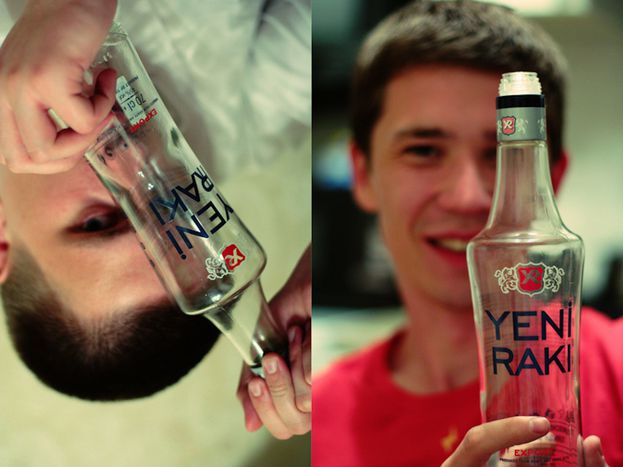
Raki: calling time on Turkey's national drink?
Published on
Translation by:
 Lucy Knight
Lucy Knight
The Turkish prime minister Recep Tayyip Erdoğan is leading a fierce campaign against alcoholic drinks by discouraging consumption and increasing taxes. So where does this leave raki - a pleasant spirit flavoured with anise - and what do those who consider it Turkey's national drink make of the measures?
'No alcohol after 9 o'clock this evening,' I hear a waiter say as I sit in a fine restaurant in the centre of Istanbul, not far from the Galata tower. I can't hide my disappointment. What's going on? Only a couple of years before I had come here and enjoyed grilled lamb and aubergine rolls, a glass of raki in hand. Now I was stuck with pomegranate juice. It must be the Erdoğan effect.
The Erdoğan effect
The conservative prime minister of Turkey is cracking down on alcohol consumption, which, in the context of the gradual islamification of the country, is turning into a touchy issue between the secular and religious members of a society with a growing respect for religious values. In a recent public speech, Erdoğan claimed that the national drink was not beer, or even raki, but the alcohol-free ayran - yoghurt diluted with water - that, as his grandmother used to say, symbolises a healthy society.
Read Istanbul's criminal, cosmopolitan activity to sit outside bars on cafebabel.com
Yet while the government promotes non-alcoholic drinks and increases tax on alcoholic beverages (Turkey has one of the highest alcohol tax rates in the world), the association of traditional Turkish alcoholic beverage producers has asked the EU to grant raki the status of national drink. It's an interesting contrast.
In any case, while waiting for the Turkish people to come to an agreement, why not try a glass of raki, diluted with water or şalgam suyu (a type of beetroot juice), either as an aperitif or with a meal. Hurry, before it's too late!
Similar to sambuca
Raki is a spirit produced using grain, corn, potatoes, dates, plums, or more commonly grapes, and flavoured with anise and mint. Never less than 40° proof, in Turkey it is usually drunk on the rocks, diluted with water. The drink has several variants - and therefore various names in different countries - across the Balkans and, more generally, the Middle East. French pastis and Italian sambuca also recall the flavour of raki.
Image: (cc) dwarf 0/ flickr; video © Federico Iarlori and Argemino Barro for cafebabel.com
Translated from Raki: (ex) bevanda nazionale turca?


